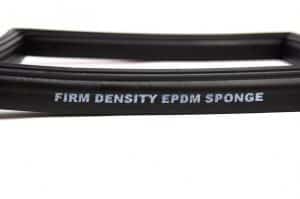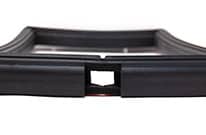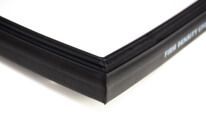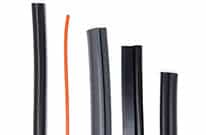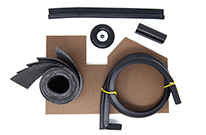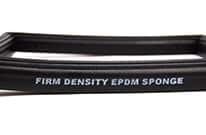Doug Sharpe
President of Elasto Proxy
Did you know that some plastic parts can be as strong as metal ones? For years, the automotive and aerospace industries have been replacing metal products with plastic components. Driven by demands to reduce weight and improve fuel economy, manufacturers are adopting engineered plastics that can achieve the same tight tolerances – and with fewer secondary operations.
With the proper design and compound selection, plastic parts can provide much more than high tensile strength and corrosion resistance. Because plastic injection molding allows for undercuts, threads, and ports, product designers can create complex shapes to finish-level specifications. Specialty polymers can also provide thermal or electrical conductivity, or shielding against electromagnetic interference (EMI).
In some industries, demand for increased resistance to chemicals and heat are powering a metal-to-plastic conversion. In other industries, such as medical equipment and healthcare, cost reduction and compliance with regulatory standards are key factors. It’s not just that plastic parts cost less to produce, assemble, and ship. Engineered polymers offer numerous advantages.
Supply Chain Strength
When a leading manufacturer of hospital beds wanted to reduce costs, the company replaced metal parts with plastic ones and strengthened the entire supply chain. Elasto Proxy sourced solutions that saved the manufacturer money while ensuring on-time deliveries. Today, we supply injection-molded plastic parts made from as many as 18 different molds for each hospital bed.
These components are not especially complex, but the savings on tooling is significant. Elasto Proxy’s logistical capabilities and commitment to quality help, too. Instead of paying for a year’s worth of plastic parts all at one time, the hospital bed manufacturer can order quantities several times a year. To ensure part quality, we inspect the components carefully and verify that they meet all requirements.
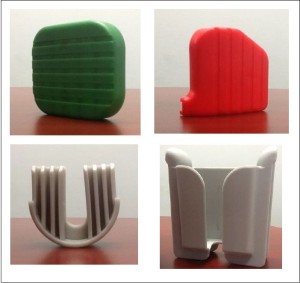 Molded Plastic Parts for Hospital Beds
Molded Plastic Parts for Hospital Beds
The pedal pads on the hospital beds are made of strong but lightweight ABS plastic. Thanks to Pantone coloring matching, the pedal pad that unlocks the hospital bed is colored green for “go”. To help patients distinguish pedal functions, the part that helps brings the bed to a stop is colored red. Both of these cost-effective, foot-driven components are designed to withstand numerous cycles.
Elasto Proxy also supplies the hospital bed manufacturer with Delrin® rollers that can support patients weighing up to 300 lbs. An engineered thermoplastic, polyoxymethylene (POM) provides high stiffness, low friction, and excellent dimensional stability. With Pantone color matching, these economical plastic rollers are colored gray to match the expensive metal that’s used on the hospital beds.
In addition to pedal pads and bed rollers, Elasto Proxy supplies the hospital bed manufacturer with plastic parts that slide over metal edges, and bed-mounted holders for patients and medical staff to use. By replacing metal parts with engineered polymers, the manufacturer is reducing costs, ensuring quality, and meeting the needs of its customers.
Visit the IHS GlobalSpec Virtual Event and Join the Conversation
For more information about how Elasto Proxy supports the medical industry, visit our booth at IHS GlobalSpec’s Medical Equipment Design and Online Conference & Trade Show on May 21, 2014. This free on-line event lets you learn about medical-grade materials, products, and much more from the convenience of your desktop. Register now to attend, or preview this video for more information.
Even if you can’t attend this virtual event, I hope you’ll comment on this blog entry. Look for a link to it on all of Elasto Proxy’s social media channels: LinkedIn, Facebook, Google+, and Twitter. I hope you’ll subscribeto our e-newsletters, too. They’re a great source of information delivered right to your email inbox, and provide links to blog entries like this one.


